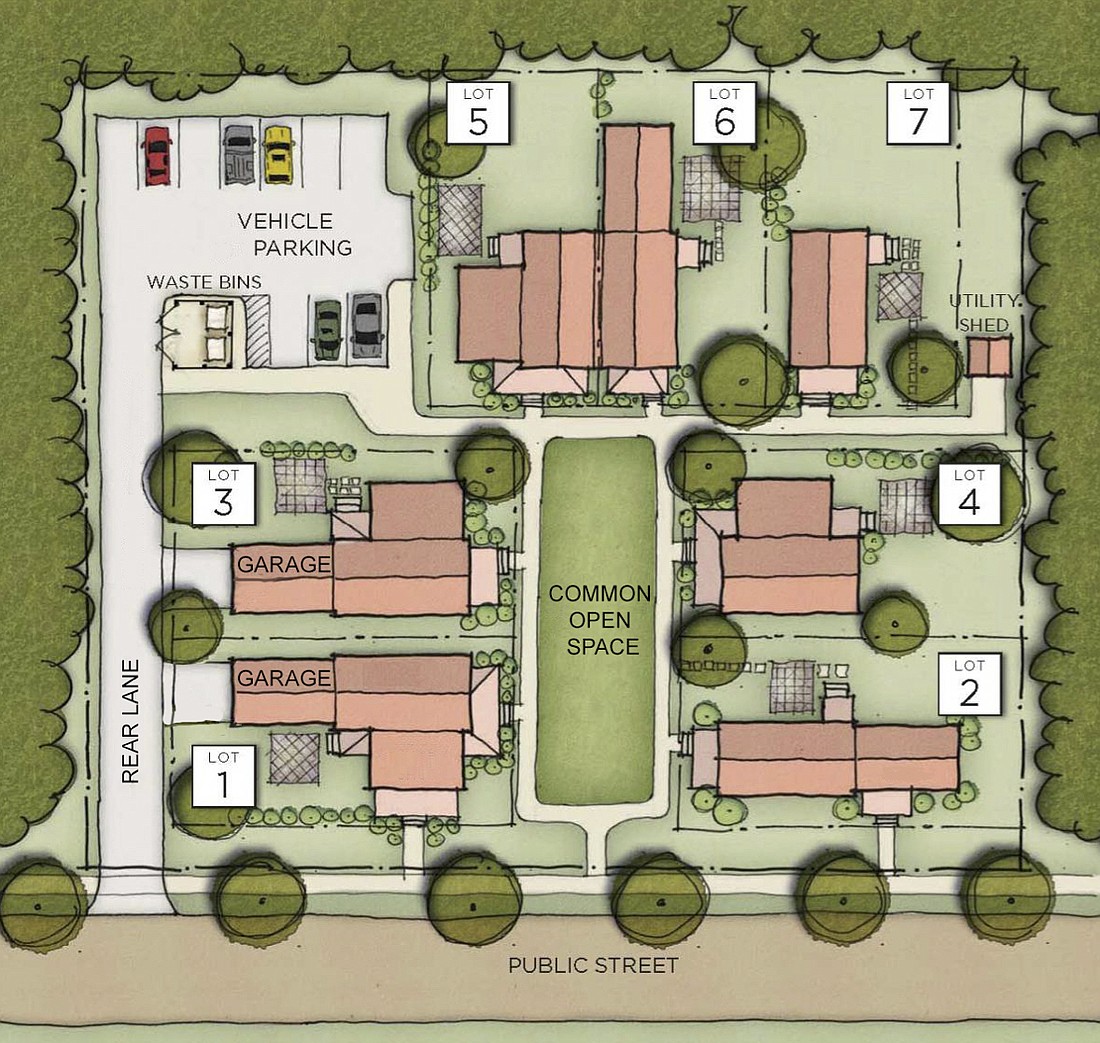- January 7, 2025
-
-
Loading

Loading

The City Commission voted to approve three zoning code changes designed to facilitate the production of affordable housing in a series of 5-0 and 4-1 votes Monday, but only after board members expressed some concern about aspects of two of those proposals.
The zoning text amendments, which commissioners must approve at a second public hearing to take effect, allow for reduced parking requirements for multifamily projects with affordable units, create a new zoning classification with density bonuses for affordable projects and establish new regulations for cottage court developments.
City staff said the proposals were part of a suite of affordable housing regulations it planned on pursuing. Staff members said the zoning code changes were based on recommendations in the Florida Housing Coalition’s 2018 Blueprint for Workforce Housing and input from the city’s Affordable Housing Advisory Committee.
“We’re not saying any one of these is going to be the silver bullet,” said Ryan Chapdelain, the city’s planning general manager. “But I think having as many strategies to our use as possible only benefits the city and can really make an impact in addressing affordable housing.”
Although she ultimately voted in favor of all three proposals, Mayor Jen Ahearn-Koch said she had hoped for more evidence of outreach to neighborhood groups ahead of Monday’s meeting. Staff noted that they presented the zoning changes at Saturday’s Coalition of City Neighborhood Associations and heard no opposition to the changes outlined.
Still, Ahearn-Koch said she believed it was important to vet citywide affordable housing proposals through neighborhood associations, particularly those where she felt there could be concerns about regulatory changes affecting existing single-family neighborhoods in some way.
“I would just like to see some more neighborhood involvement, outreach and discussion,” Ahearn-Koch said.
Commissioner Shelli Freeland Eddie said she understood her colleagues’ concerns, and she recommends the commission revisit this conversation in the future to evaluate the efficacy of the changes.
She also felt it was important to move forward now in hopes of addressing an affordable housing shortage in the city.
“We’re stuck between the stagnancy of doing nothing and the fear that doing something won’t achieve the goals that we hope it will,” Freeland Eddie said.
One zoning text amendment reduces the parking requirement for affordable units in a multifamily development from two spaces per unit to 0.5.
Planning staff said the proposal reflected an effort to right-size parking requirements for housing developments, stating that 0.5 spaces per unit was a standard in place in cities across the country.
The zoning text amendment defines qualifying affordable housing units as those affordable for at least 30 years to households making 120% or less of area median income.
According to the U.S. Department of Housing and Urban Development, median family income in the Sarasota region is $76,700.
The commission approved the creation of the Residential Multi Family 6 and 7 zoning districts, which allow a density of 35 and 50 units per acre, respectively, if affordable housing is incorporated into a project.
The RMF-6 and RMF-7 zoning categories include a baseline density of 18 and 35 units per acre and a height limit of 45 and 65 feet. To take advantage of the density bonus, a developer must provide at least one unit of affordable housing for every three units of market-rate housing above the baseline density.
At least one-third of those affordable units must be for households earning at or below 80% of area median income, while no more than one-third can be offered to households earning between 100% and 120% of area median income.
Because no land in the city carries the Multiple Family, High Density future land use designation, a property owner would have to get the city to approve a comprehensive plan amendment and rezoning.
The city already is taking advantage of existing cluster-housing regulations to make it easier to build cottage court developments, housing projects with a series of structures arranged around a shared court.
The new regulations include new design standards and make cottage courts buildable by right in certain single-family and downtown zoning districts and all multifamily districts.
Planner Briana Dobbs said cottage courts represent a housing type that fits into the character of existing neighborhoods while offering flexibility for builders and opportunities for smaller, more affordable units.
This article has been updated to clarify that the City Commission approved the zoning text amendments on first reading and that a second public hearing will be held before final adoption.